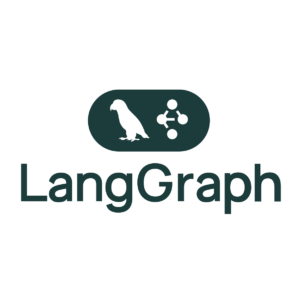|
Is Your Data Ready for AI Implementations? |
As organizations move toward deploying autonomous AI systems, the need for coordinated, multi-agent workflows becomes essential. While individual agents like those powered by AutoGPT demonstrate task autonomy, orchestrating complex, stateful, and collaborative interactions between agents or AI components requires a more advanced approach. This is where LangGraph comes into play.

LangGraph is an open-source framework that enables the development of stateful, multi-agent applications using Large Language Models (LLMs). Built on top of LangChain, LangGraph introduces a graph-based architecture for managing the flow of interactions between agents, tools, memory components, and other modules.
At its core, LangGraph:
Allows you to define nodes (agents, functions, tools) and edges (paths and conditions for execution),
Supports asynchronous execution, retries, branching, and loops,
Maintains persistent state across each execution cycle.
This structure mimics finite state machines, allowing AI developers to model dynamic business logic, complex decision trees, and long-running workflows with contextual awareness and traceability.
At ThirdEye Data, we specialize in building enterprise-ready agentic AI systems, AI agents that understand, decide, and act autonomously. As our solutions grow in complexity, often involving multiple cooperating agents, varied tools, APIs, and memory, we leverage LangGraph as a robust foundation for orchestrating these systems.
Here’s how we integrate LangGraph into our AI development lifecycle:
LangGraph allows us to design and deploy multi-agent systems with clearly defined roles, such as researcher agents, verifier agents, summarizers, and action-takers, working together in a loop.
Unlike traditional pipelines that reset with every run, LangGraph allows us to persist state and context across steps. This is critical when dealing with:
Multi-turn conversations with memory
Long decision-making loops (e.g., negotiation agents)
Escalations between AI and human-in-the-loop processes
LangGraph supports conditional branching, error recovery, custom logic, and event-based transitions, helping us implement robust failover strategies and intelligent retry mechanisms in mission-critical AI systems.
As LangGraph is built on LangChain, we seamlessly plug in:
Retrieval Augmented Generation (RAG) pipelines
Vector DBs for contextual search
External APIs and databases
Internal tools and APIs of client systems (ERP, MES, CRMs)
We invite you to experience a live demo from our vault of pre-built agentic AI solutions or schedule a consultation.
LangGraph is a powerful framework that elevates agentic AI from standalone experiments to scalable, modular, and production-grade systems. At ThirdEye Data, we see it as an essential component in building the next generation of autonomous AI architectures.
Strengths
Clear graph-based structure for workflow orchestration
Handles complex, dynamic decision-making and looping
Native support for state persistence and memory
Built-in compatibility with LangChain tools and agents
Limitations
Still evolving; documentation and community patterns are maturing
Not a one-size-fits-all: simpler workflows may not need this overhead
Requires solid design architecture to prevent logic complexity
Outlook
We believe LangGraph is mission-critical for scalable agentic systems, especially when building collaborative AI agents with:
Domain-specific task flows
Human-AI interaction checkpoints
Complex approval or escalation layers
Data governance and audit trails
At ThirdEye Data, we’re actively building custom LangGraph-powered systems for enterprises, helping them reimagine operations across supply chain, HR, marketing, manufacturing, and healthcare.